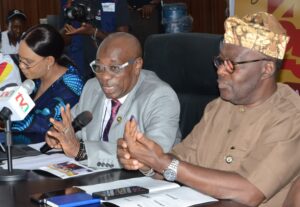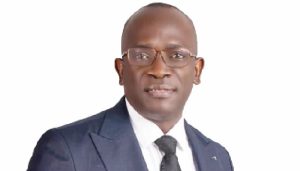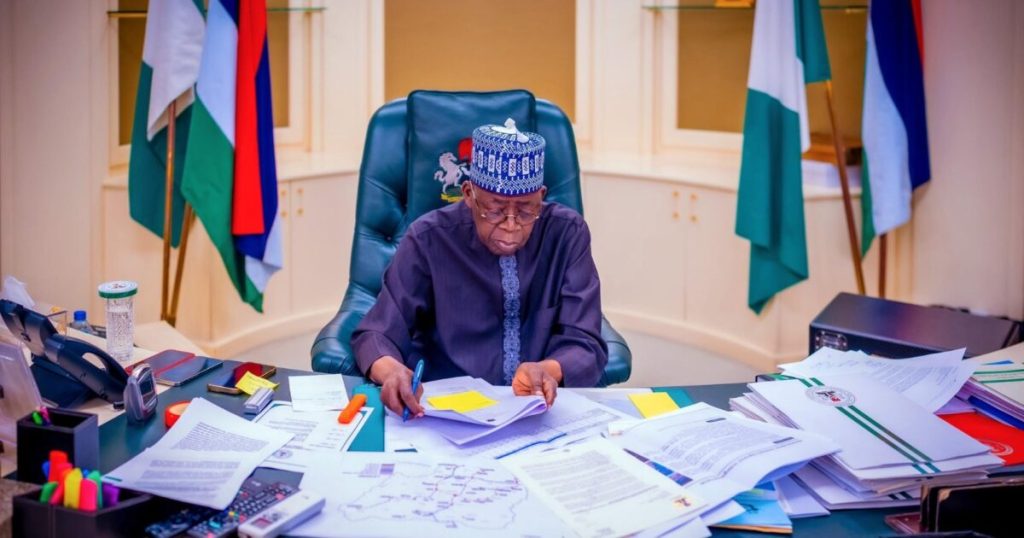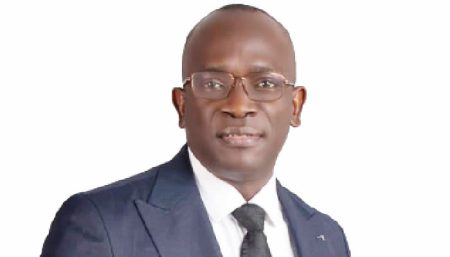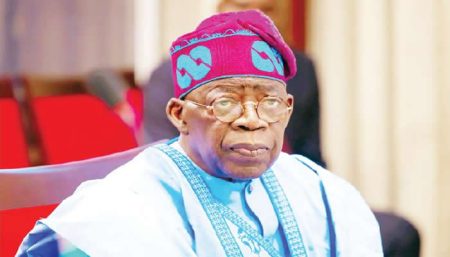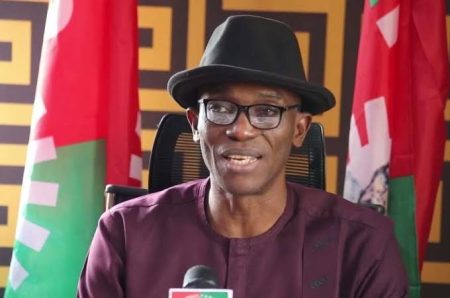Paragraph 1: Tinubu’s Endorsement for 2027 Presidential Election
On May 22, 2025, President Bola Ahmed Tinubu received a significant boost to his political future as the All Progressives Congress (APC) formally endorsed him as their candidate for the 2027 presidential elections. This endorsement, announced by APC National Chairman Dr. Abdullahi Ganduje during a National Summit held at the State House Banquet Hall in Abuja, solidified Tinubu’s position as the party’s preferred choice for the upcoming election cycle. The announcement followed closely on the heels of a vote of confidence and endorsement for a second term from APC governors and lawmakers, further solidifying the president’s support within the party ranks. This development sets the stage for a potential continuation of Tinubu’s presidency and signals the APC’s confidence in his leadership and vision for the nation.
Paragraph 2: The Significance of Early Endorsement
The timing of this endorsement, well over two years before the scheduled 2027 elections, holds significant political weight. It serves as a strong show of unity within the APC, potentially discouraging internal challenges to Tinubu’s candidacy. An early endorsement can also consolidate support around the incumbent, allowing him to focus on governance and policy implementation rather than internal party politics. This early move can also help shape public perception and frame the narrative around the next election, giving Tinubu a head start in building momentum for his campaign. It demonstrates the party’s belief in his ability to continue leading the country, effectively silencing any potential speculation about alternative candidates within the APC.
Paragraph 3: Implications for Nigerian Politics
The endorsement carries broad implications for the Nigerian political landscape. It signals the APC’s intention to maintain continuity in its policy direction and leadership. This early move might influence the strategies of other political parties, forcing them to accelerate their own candidate selection processes and campaign preparations. The endorsement also sets the stage for potential debates about Tinubu’s first term performance, which will likely become a central theme in the upcoming election cycle. The stability provided by an early endorsement allows the government to focus on delivering on its promises without the distraction of internal party power struggles, potentially leading to more effective governance and policy implementation.
Paragraph 4: Analyzing Tinubu’s First Term (Hypothetical)
As of the date of the reported endorsement, May 22, 2025, President Tinubu would be approximately two years into his first term. A comprehensive assessment of his performance would require a detailed analysis of his administration’s achievements, challenges, and policy initiatives up to that point. This analysis would likely encompass aspects such as economic performance, security, infrastructure development, social programs, and his approach to governance. Public opinion polls, economic indicators, and expert analyses will play crucial roles in shaping the narrative surrounding Tinubu’s first term and influence the public’s perception of his fitness for a second term. This evaluation will undoubtedly become a cornerstone of the 2027 election campaign.
Paragraph 5: The Road to 2027: Challenges and Opportunities
The endorsement marks the starting point of a long journey towards the 2027 elections. President Tinubu and the APC will face numerous challenges in the lead-up to the polls. Maintaining party unity, addressing potential internal dissent, and effectively communicating their achievements to the electorate will be crucial. The economic climate, security concerns, and social issues will be key factors shaping public opinion and influencing the electoral landscape. The opposition parties will inevitably scrutinize Tinubu’s record and present alternative visions for the country. Navigating these challenges effectively and capitalizing on opportunities to showcase his vision for Nigeria will be pivotal for Tinubu’s success in the 2027 elections.
Paragraph 6: The Media and Public Discourse
The media will play a critical role in shaping public discourse and influencing voter perceptions throughout the election cycle. News coverage, analysis, and commentary will dissect Tinubu’s performance, scrutinize his policies, and amplify the voices of both supporters and critics. The rise of social media will further intensify the flow of information and opinions, creating a complex media landscape that both the APC and the opposition will seek to navigate. The way the media frames the narrative and presents the key issues will significantly impact the public’s understanding of the choices before them in the 2027 elections. Managing media relations and effectively communicating with the public will be paramount for all parties involved.


